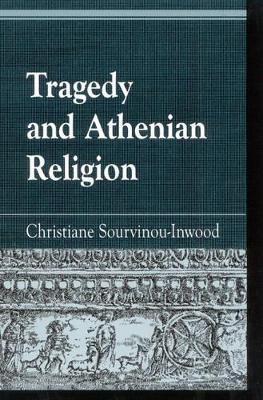Greek Studies: Interdisciplinary Approaches
1 total work
Stemming from Harvard University's Carl Newell Jackson Lectures, Christiane Sourvinou-Inwood's Tragedy and Athenian Religion sets out a radical reexamination of the relationship between Greek tragedy and religion. Based on a reconstruction of the context in which tragedy was generated as a ritual performance during the festival of the City Dionysia, Sourvinou-Inwood shows that religious exploration had been crucial in the emergence of what developed into fifth-century Greek tragedy. A contextual analysis of the perceptions of fifth-century Athenians suggests that the ritual elements clustered in the tragedies of Euripides, Aeschylus, and Sophocles provided a framework for the exploration of religious issues, in a context perceived to be part of a polis ritual. This reassessment of Athenian tragedy is based both on a reconstruction of the Dionysia and the various stages of its development and on a deep textual analysis of fifth-century tragedians. By examining the relationship between fifth-century tragedies and performative context, Tragedy and Athenian Religion presents a groundbreaking view of tragedy as a discourse that explored (among other topics) the problematic religious issues of the time and so ultimately strengthened Athenian religion even at a time of crisis in very complex ways— rather than, as some simpler modern readings argue, challenging and attacking religion and the gods.
